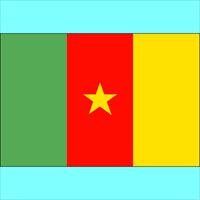CAMEROON: Not quite back to normal
Traffic jams and urban bustle have returned to main towns and cities in the west and centre of Cameroon, belying the violence that just weeks earlier left many people there dead and a general population so scared most did not leave their homes for several days.
Yet human rights groups remain concerned that the government is employing heavy-handed tactics in clamping down on the media and arresting and imprisoning hundreds, possibly thousands, of youth who they say are not receiving due process.
“The arrests [of those accused of taking part in the violence] continues,” human rights advocate Madeleine Afité, of House of Human Rights, told IRIN
The number of arrests is in dispute. A government spokesmen said the total is around 1,500 but Afité said the number is much higher. “Around 2000 people were arrested in Douala alone,” she said.
A lawyer in Yaoundé, Me Francis Djonko, told IRIN that those arrested are not receiving due process. "The accused should have at least three days to prepare their defence but that is not being respected in the cases I have had to defend,” he said, adding some of the accused have already receiving prison sentences of up to three years.
A source close to Cameroon’s President Paul Biya said that some members of the government are suspected of fermenting the violence and may soon by taken into custody. President Biya went on state media on 27 February during the rioting to say that “certain politicians” were seeking to overthrow his government in a coup d’état.
Figures on the number of dead also remain unclear. The government spokesperson Jean-Pierre Biyiti Bi Essam told the French Agency Press (AFP) on Wednesday that only 24 people had been killed but human rights groups say the number is far higher.
“We are still trying to cross-check information but we can already say that a hundred or so people must have died,” Afité said.
International media monitoring groups have accused government of censoring the media and beating and intimidating journalists as well as confiscating their equipment.
The government has also closed down at least three media houses but denies that it is part of a general effort to censor the press. “[The media houses] either carried out certain broadcasts which are insensitive, provocative, or controversial and obviously certain administrative decisions have been taken in order to ensure that these broadcasts do not endanger the stability or social order,” government minister Elvis Ngolle Ngolle told Voice of America.
The riots started in the economic centre Douala in the west of Cameroon on 25 February, and quickly spread to the political capital Yaoundé and other cities as youths protested against rising fuel and food prices and efforts by President Biya to change the constitution so that he could run again in the 2011 elections.
 Back and Next - Back and Next
Back and Next - Back and Next
 See Also - See Also
See Also - See Also